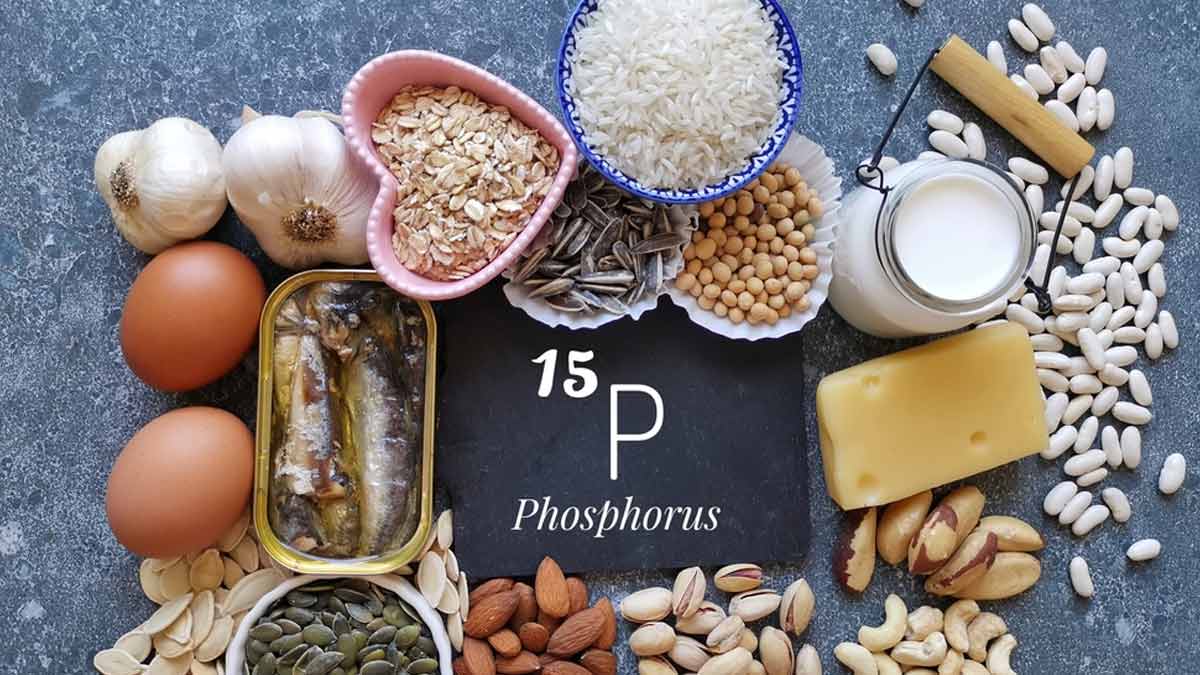
People are gradually recognising the role of minerals like calcium, potassium, and iron in the body. However, the role of phosphorus, a nutrient that makes up 1% of a person's total body weight, impacts health remains less understood. It is crucial for almost every body cell, especially in the bones and teeth. Let’s understand in detail the benefits of phosphorus and why it is important for the body.
Table of Content:-
Also Read: Vitamins And Minerals Deficiency: Types, Causes, And Symptoms
Why You Need Phosphorus

In an interaction with the OnlyMyHealth team, Dr Shobha Subramanian Itolikar, Consultant-Internal Medicine, Fortis Hospital, Mulund, describes phosphorus as an essential mineral that is second most abundant in our body after calcium.
Some of the reasons why we need phosphorus in our body include:
- Structural benefit: It helps to form and maintain healthy bones and teeth.
- Nutritional benefit: It helps in digestion as well as the absorption of essential nutrients like the vitamins riboflavin and niacin, which are essential for normal body function.
- Normal cellular function: It forms a component of the cell wall and cell membrane called phospholipids. It also maintains the acid-base balance in the cells and fluids.
- Energy storage: it is an essential component of ATP, which stores energy.
- Genetic building blocks: they help produce the components of our DNA and RNA.
- Enzyme system: it is an important component of various enzymes in the body.
- Repair of tissues
- Maintenance of nerve and muscle health
Signs You May Be Deficient

The Recommended Dietary Allowances (RDA) for phosphorus vary depending on age and life stage. Infants from birth to six months old need just 100 mg, while children up to eight years old require 460–500 mg. Then, from ages 9–18, the recommended amount jumps to 1,250 mg for both males and females. Interestingly, once adults reach 19 years old, the RDA drops significantly to 700 mg and remains constant throughout adulthood, including pregnancy and lactation, according to the Office of Dietary Supplements (ODS) of the National Institutes of Health (NIH).
Low levels of this vital mineral can lead to various health problems and symptoms. These include:
- Muscle weakness
- Respiratory depression
- Brittle bones
- Tooth decay
- Fatigue
- Overall reduced quality of life
Also Read: What Is Low Phosphorus Diet and Why It Is Necessary for Kidney Disease Patients?
Healthy Sources Of Phosphorus
Most of our phosphorus requirements can be fulfilled through a daily balanced diet, says Dr Itolikar.
However, health conditions such as diabetes, states of steroid excess (hypercortisolism), low vitamin D levels, patients on dialysis or diuretics, and patients using insulin may have low phosphorus levels.
Moreover, medications like antacids can lower phosphorus levels in the body, the doctor adds.
But you can always include healthy sources of phosphorus in your diet, which include:
- Milk
- Quinoa
- Tuna
- Scallops
- Tofu
- Cheese
- Nuts
- Soy
- Sunflower seeds
Avoid Excess Phosphorus Intake

When it comes to phosphorus intake, moderation is key. Too little or too much of the mineral can both cause health problems. Taking in excess phosphorus can cause certain side effects. Dr Itolikar mentions, “High phosphate levels usually indicate Chronic Kidney Disease (CKD) or thyroid or parathyroid gland disorders. High phosphate levels also occur due to the use of phosphate-containing laxatives, enemas, and too much vitamin D supplement.”
He adds that people who have too much phosphorus in their system can experience itchy skin with rashes, tingling of hands and feet, tingling numbness around the mouth, bone pain, muscle cramps, and calcium deposits in blood vessels.
Conclusion
Phosphorus is an essential mineral that helps build strong bones and teeth. It also benefits the digestive system and helps with normal cellular function. Additionally, it repairs tissues and maintains both nerve and muscle functions. Therefore, given the several roles it plays, it is important to ensure that you have adequate levels of this mineral in your body.
Also watch this video
How we keep this article up to date:
We work with experts and keep a close eye on the latest in health and wellness. Whenever there is a new research or helpful information, we update our articles with accurate and useful advice.
Current Version
